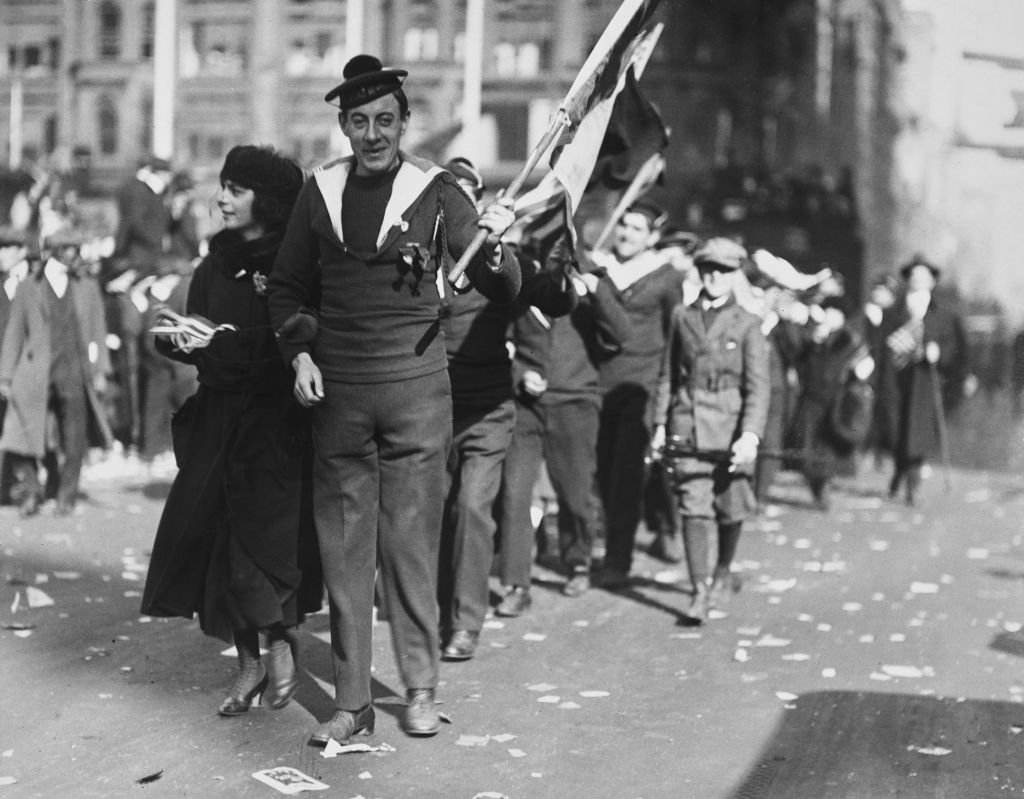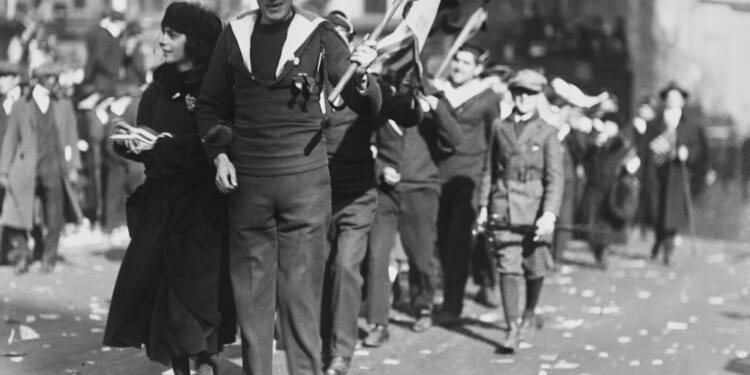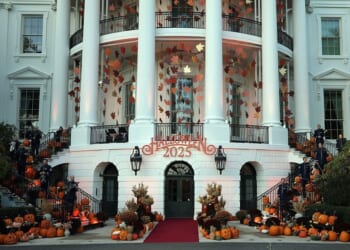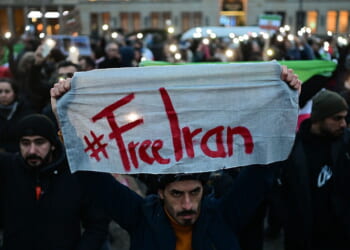
The evolution of the holiday as we know it.
When Nov. 11 rolls around each year, Americans take time to remember the military veterans who served to secure our country’s peace and prosperity. Over the years, the holiday has undergone notable change. First, it was called Armistice Day to commemorate the end of World War I, when the Allied Powers (Britain, France, the United States, Russia, Italy, and Japan) agreed to an armistice with the Central Powers (Germany, Austria-Hungary, the Ottoman Empire, and Bulgaria). But the Treaty of Versailles was not signed until seven months later, on June 28, 1919.
Veterans Day Began as Armistice Day
Although the official armistice ending World War I hostilities was agreed upon at 5:05 a.m. on Nov. 11, 1918, Allied leaders purposefully delayed the official time to 11:00 a.m. to preserve the symbolism of ending the war at the “11th hour of the 11th day of the 11th month.” The practical consequence of manipulating the time was that fighting continued during the six-hour gap, resulting in unnecessary killing. That was just a foretaste of the shabby treatment World War I veterans would receive when they returned home.
In 1921, on the third observance of Armistice Day, the Tomb of the Unknown Soldier was dedicated to honor the unidentified remains of a World War I soldier repatriated from a grave in France and laid to rest in a newly built tomb in Arlington National Cemetery. President Warren Harding and representatives from Allied countries attended the ceremony, marking the beginning of an annual wreath-laying observance that would laud unknown soldiers from World War II, the Korean War, and the Vietnam War.
On May 13, 1938, Congress passed the Armistice Day Act, making Nov. 11 “a day to be dedicated to the cause of world peace and to be thereafter celebrated and known as ‘Armistice Day,’” according to a National Constitution Center blog post. There was no direct reference to veterans, and the “world peace” was soon shattered when Japan invaded China in 1937 and Germany annexed the Sudetenland from Czechoslovakia in 1938. Nonetheless, the observance was celebrated with parades, public gatherings, and suspension of business at 11:00 a.m. across the United States.
It would be another 16 years before veterans would be specifically honored. In 1954, President Dwight Eisenhower issued a proclamation renaming the holiday Veterans Day. Furthermore, Eisenhower expanded its reach to recognize all veterans and appointed the head of the Veterans Administration, later known as the Department of Veterans Affairs, to coordinate commemorations. This made it official, with an agency in charge of keeping alive the flame of remembrance for all veterans, living or not.
Congress Passes Misguided Legislation
There appeared to be some stability in observing Veterans Day for years, but Congress decided to boost tourism by creating more three-day weekends. The passing of the Uniform Monday Holiday Act in 1968 moved the holiday from its fixed date of Nov. 11 to the fourth Monday in October. But what happened to the link between World War I veterans and Armistice Day? Great confusion reigned over what was being celebrated, and veterans’ organizations were incensed, arguing that the new holiday structure ignored the commemoration’s founding.
The message was heard, and “in 1975, President Gerald Ford returned Veterans Day to November 11, due to the important historical significance of the date,” History.com reported. Veterans Day is significant because it honors those citizens who serve and have served in the nation’s armed forces. The Bureau of Labor Statistics reports that veterans represent 6.5% of the total adult US population, the brave few who provide the mantle of security for the many. It is fitting that veterans have their special day.
The views expressed are those of the author and not of any other affiliate.
Liberty Nation does not endorse candidates, campaigns, or legislation, and this presentation is no endorsement.

















